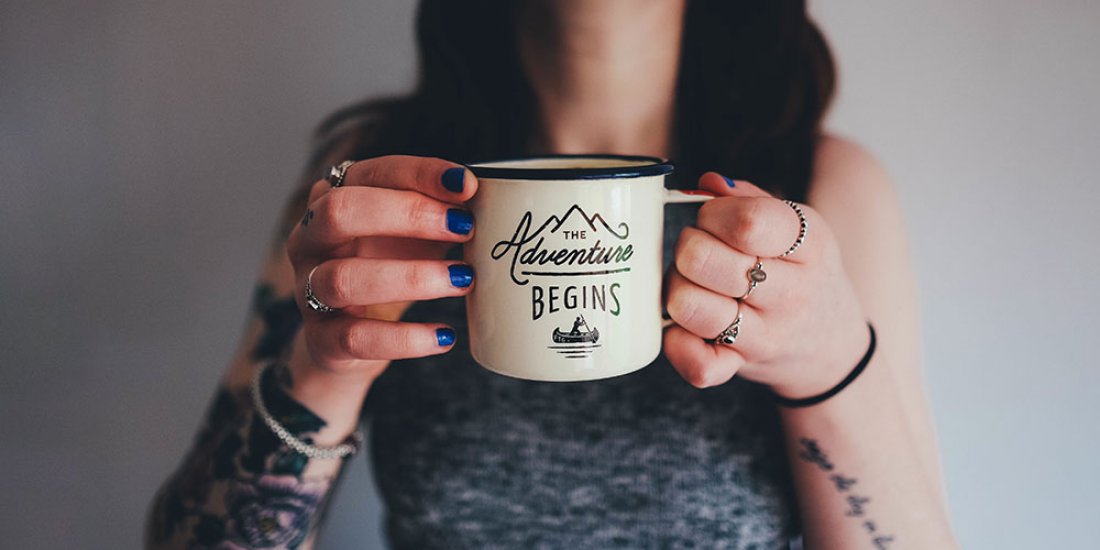Ink and Onsen: How to Enjoy Hot Springs If You Have Tattoos
 Photo By: Fernando Gimenez
Photo By: Fernando Gimenez A unique and compelling aspect of travelling throughout Japan is sampling the various onsen (hot springs) and sento (community bathhouses) available. Both terms refer to public baths, the difference being that an onsen is fed by natural geothermal springs while a sento (generally) uses heated tap water. To maintain the distinction, there are legal restrictions on onsen requiring that they contain at least one of 19 specific natural chemical elements, like iron or sulphur.
Another restriction, unofficial yet still regularly enforced, is against customers with tattoos.
A short history of tattoos in Japan
Tattoos - and their attached taboos - have been in Japan for as long as onsen have been popular.
In the 7th century, the first correlation between tattooing and punishment is recorded when the Emperor punished the rebel Hamako, Muraji of Azumi, with a tattoo rather than death. The tattoo was meant to punish him with physical and psychological pain alike, as it indelibly marked him as a criminal. By the 17th century, tattoos had become an acceptable form of punishment and were reserved for the very worst criminals. They were usually a combination of patterns and symbols which often implied the places of the crime committed. Those with tattoos were shunned by their families and the general public and refused a place in society.
In the late 1700's, criminals began to cover their tattoos with decorative designs of their own choosing, which brought an end to the use of tattoos as punishment. Herein lies the origin story of the link between organised crime and tattoos. Come the 18th century, decorative tattoos had become a popular artform, but were eventually outlawed because of their affiliation with crime. Once they were illegal, tattoos were embraced even more by those belonging to the counter culture, most notably by the yakuza (Japanese mafia). To them, tattoos were a physical manifestation of what they stood for: bravery, loyalty and resistance to the law.
An indelible legacy
It's been difficult for Japan to shed the connection between tattoos and illegal activity. This prejudice is most clear in public bathing facilities, where tattoos are generally still forbidden, although there is no official ban on them. Even foreign tourists, who are clearly not involved in Japanese organised crime, can be turned away for their tattoos. This may be because those with ink, even if they are obviously not criminals, are still seen as rebelling against the mainstream and thereby their tattoos are thought to be potentially offensive to the general public.
Even traditional tattoos don't get a free pass. My friend Nick has this story:
"I went to an onsen in Nagoya with a guy I was dating at the time who was Samoan and had traditional tattoos. We were totally naked and this old woman came up to us crossing her arms and saying "Da-me! Da-me! (No good! No good!)" Despite our protests (in broken Japanese) saying they were traditional Samoan tattoos, we were nakedly ushered out to the changing rooms. At least they gave us a refund."
A push for change
The Japanese Tourism Agency decided to tackle the issue in the summer of 2015 when they conducted a survey of about 3,800 ryokan (Japanese inn) throughout the country regarding their approach to allowing tattooed guests. The results weren't promising: 56 percent said they refuse guests with tattoos, while 31 percent said they do not and 13 percent said they permit entry if the tattoos are covered. The stats show that tourism is on a rapid increase and the JTA is striving for even more - aiming to reach 40 million tourists by 2020. As onsen are a huge pull for foreign visitors, the JTA is trying to encourage these establishments to eschew their no-tattoo policy to make foreigners feel more welcome. Notably, this request did not include allowing Japanese guests with tattoos.
Some tips and tricks
How onsen owners will respond to the request is still up in the air and on a case-by-case basis. Many will accept small, less noticeable tattoos while refusing guests with larger pieces. For the time being, those with tattoos need to come up with inventive ways to get around the restriction.
Friends of mine with smaller tattoos have gotten away with covering them with bandages or even using their small onsen towel to obscure them. For those with back tattoos, leaning against the wall while in the water has worked.
Another option is to only bathe in kashikiri-buro, or private baths, which are available at larger onsen and many ryokan. This may also be an appealing option for those who'd rather not bare all in front of multiple strangers. This site has a list of ryokan that have private baths available. Depending on the ryokan, private baths are bookable upon check-in, in advance or whenever available and often cost extra money.
Tattoo-friendly onsen
For those with more obvious tattoos, there are some great user-friendly Japanese-language sites (translatable through Google or your favorite browser extension) that provide comprehensive lists of tattoo-friendly onsen and sento. One is for all of Japan. The other is Osaka-specific.
- Hoheikyo Onsen, in the suburbs of Sapporo, is a popular tourist destination known not only for its open air baths but for its delicious Indian curry.
- Hoshino Resort recently made headlines by declaring they would accept visitors with small tattoos at their 13 kai high-end onsen resorts as long as customers used their complimentary 8'' x 10'' cm stickers to cover them. For a list of the inns, which are located throughout Japan, visit their page.
- Jakotsu-yu, tucked in a side street of Asakusa in Tokyo, was renovated in 2009 and is popular with locals and tourists alike. It's known for a huge tiled mural of Mt. Fuji on the walls of the bath.
- Kin-no-yu Onsen is the oldest public bath in the quaint onsen town of Arima, Kobe.
- Shima Onsen Kashiwaya Ryokan. This relaxed inn with hotspring bathhouses in the town of Nakanjo, Gunma Prefecture, is roughly three hours by bullet train from Tokyo and accept tattooed guests in all of their onsen. It also features bike rentals and a library.
- Takaragawa Onsen in Gunma is not only tattoo-friendly, but offers open air mixed-gender baths (plus beer vending machines) overlooking a scenic river for those looking for a unique experience.
- For a more comprehensive list, try GaijinPot Travel's article: 30 Tattoo Friendly Onsen in Japan.
Dust off your Japanese
Some suggest contacting the onsen directly (especially if it's a large sento or ryokan, their phone number or email will be available on their website) and asking them if tattoos are OK. Often, they will allow you to visit, but ask that you avoid peak hours. Here are some useful Japanese phrases if you're feeling brave:
- "Tatuu wa daijobu desu ka?" ("Are tattoos OK?")
- "Totemo chiisai tatuu ga arimasu. Daijobu desu ka?" ("I have a very small tattoo. Is it OK?")
- "Ookii tatuu ga arimasu. Daij obu desu ka?" ("I have a large tattoo. Is it OK?")
- "Tatuu no haitta gaikokujin desuga, onsen ni hairemasu ka?" ("I'm a foreigner with a tattoo, can I use your onsen?")
Don't be shy…
Sometimes onsen attendants just need a little convincing. A friend, Alison, shared this story: "As I was about to enter a bath, an old woman came scurrying up to me and tapped me on the shoulder, scolding in a hushed voice that I had to leave. My Japanese friend talked her down and after 15 minutes or so, convinced her to bring a washcloth to cover my back. The tattoo showed through it, so I had to wear two washcloths covering my back while I was there, and sit against a wall as well. I did this for the rest of the onsens we visited, just to be safe."
Other onsen owners can be welcoming. My friend Kira, whose body is at least 50 percent covered in tattoos, had this heartening story: "I had an awesome experience at Sakinoyu Onsen in Shirohama, which is a beautiful open air onsen overlooking the ocean and apparently one of the oldest in Japan. Wearing a dress, with a good proportion of my ink showing, I sheepishly approached the onsen staff. I asked them if tattoos were OK, fully expecting them to turn me away, but they said "It's fashion. Dozo!" - so in I went. I was the only foreigner, everyone stared. I felt naked and vulnerable. But other women came up to me with their babies and talked to me and asked me where I was from. They were really sweet and my discomfort soon dissolved."

Martha Knauf
Likes getting lost (not always intentionally) in the backstreets of Osaka.
https://blog.gaijinpot.com
